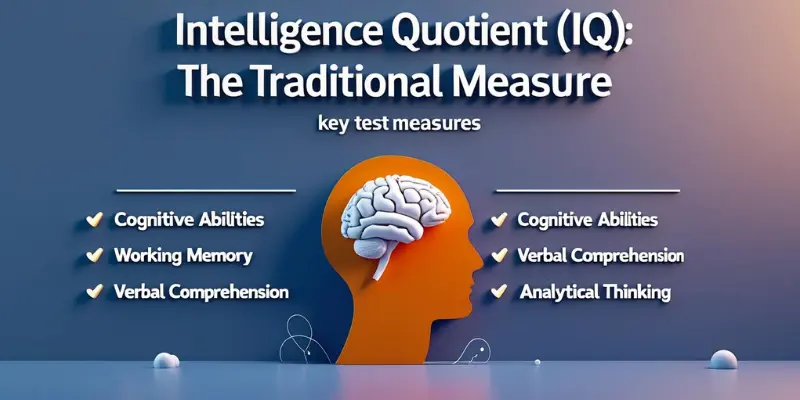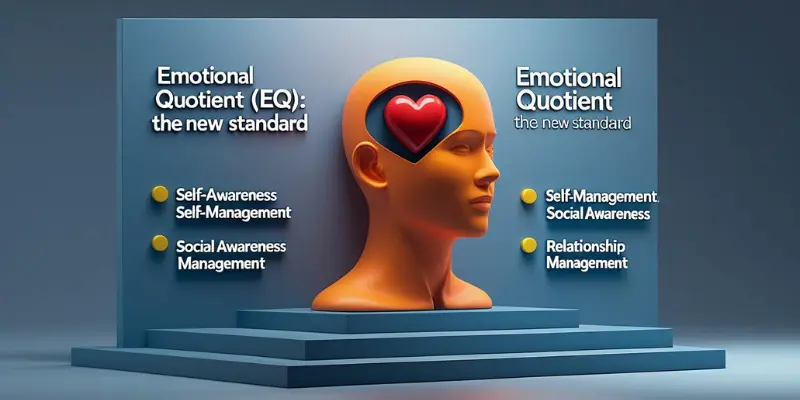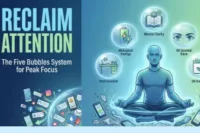EQ vs. IQ: Why Emotional Intelligence is the New Key to Success (Complete Guide)
Published: 22/08/2025
You’ve been told all your life that intelligence is measured by your IQ. It’s been ingrained in you since childhood, and perhaps you’ve even prided yourself on being among the “smartest” in the room. But if that’s true, why do so many high-IQ individuals find themselves struggling in the workplace? Why do brilliant minds, with exceptional cognitive abilities, often hit career roadblocks? Why are some of the most intelligent people not getting promoted or moving ahead as expected?
The traditional view of intelligence—mainly focused on IQ—has led many of us to believe that raw cognitive ability is the key to success. But here’s the reality: the way we define intelligence is incomplete. In today’s fast-paced world, where collaboration, adaptability, and emotional understanding are vital, a single number on an IQ test no longer predicts success.
The workplace is changing. Teams are increasingly collaborative, projects require constant shifts in direction, and leadership demands emotional insight, not just logical prowess. So, while IQ is valuable, it’s not enough.
But don’t worry; this isn’t a doom-and-gloom scenario. In this guide, we’ll offer a fresh perspective on intelligence and show you why focusing on one number—your IQ—isn’t the way forward. Based on expert insights and real-world trends, we’ll reveal the complete picture of what truly drives success today. We’ll introduce you to the most valuable intelligence of all—and more importantly, we’ll show you how you can master it.
The Foundational Difference: IQ vs. EQ
To understand why Emotional Intelligence (EQ) has become just as—if not more—important than Intelligence Quotient (IQ), we first need to define and compare both concepts. Whether you’re a professional aiming for career advancement or a student looking to dive into the psychology of intelligence, understanding these two types of intelligence is crucial.
Intelligence Quotient (IQ): The Traditional Measure
IQ is a measure of cognitive ability. It’s based on logical reasoning, problem-solving, and the ability to understand complex concepts. Essentially, it evaluates your brain’s capacity for understanding and processing information.
What it measures:
- Cognitive abilities: It includes the ability to reason, plan, and solve problems.
- Working memory: How well you can store and manipulate information temporarily.
- Verbal comprehension: Your ability to understand and process language.
- Analytical thinking: The skill to analyze situations, identify patterns, and make decisions based on available data.

While IQ has long been the standard by which intelligence is measured, it only looks at one facet of a person’s abilities—primarily logical and intellectual. However, as we’ll discuss, it’s only one piece of the puzzle.
Emotional Quotient (EQ): The New Standard
EQ, on the other hand, measures your ability to understand, manage, and navigate emotions—both your own and others’. It’s less about solving abstract problems and more about handling real-world situations involving interpersonal relationships, communication, and conflict.
What EQ measures:
- Self-awareness: Recognizing your own emotions, strengths, and weaknesses. It’s about being in tune with how your feelings affect your thoughts and behavior.
- Self-management: The ability to regulate your emotions in healthy ways, stay calm under pressure, and handle challenges without letting stress overwhelm you.
- Social awareness: Understanding and empathizing with the emotions of others. This involves being aware of social cues and the dynamics of relationships.
- Relationship management: Effectively managing interactions with others, resolving conflicts, and building strong relationships based on trust and respect.

EQ goes beyond academic or intellectual skills and plays a key role in how well we interact with others. It’s been proven that those with high EQs are more successful in team settings, leadership roles, and even personal relationships.
Beyond IQ: Why Emotional Intelligence is the Real Key to Success
If you’ve always believed that high IQ is the golden ticket to career success, it’s time to think again. The workplace has evolved. As companies move towards more collaborative environments and face rapid change, Emotional Intelligence (EQ) has emerged as the true differentiator.
But don’t just take my word for it—let’s dive into the data, expert insights, and real-world examples to see why EQ is the real key to success.
The Data-Driven Answer: What Employers Really Want
Studies and data have shown that emotional intelligence is now one of the most important factors that employers look for when making hiring and promotion decisions.
- TalentSmartEQ, a leading emotional intelligence research group, found that 90% of top performers in the workplace have high emotional intelligence. In fact, the majority of managers would rather promote a high-EQ candidate over a high-IQ one, especially when it comes to leadership roles. This speaks volumes about the growing value of emotional and social intelligence in the modern workplace.
- Expert Insight: According to Forbes, emotional intelligence has been recognized as one of the top leadership skills. In a world where leaders need to inspire, connect, and guide diverse teams, having a high EQ is crucial for motivating employees, handling stress, and managing conflict.
Real-World Example:
Consider Tom, a high-IQ employee at a tech company. Tom is brilliant when it comes to problem-solving and coding, but he struggles with teamwork. He’s often viewed as aloof and distant, and his inability to collaborate with colleagues has caused friction within the team. Despite his technical skills, he’s passed over for promotions multiple times.
Now, compare him to Sara, a colleague with a solid IQ but a high EQ. She excels in communication, resolves conflicts swiftly, and consistently brings the team together during challenging projects. Sara’s ability to manage emotions and build strong relationships helps her navigate the workplace with ease. Not surprisingly, she earns recognition and eventually gets promoted into leadership.
The key takeaway here: Technical skills and IQ matter, but EQ is what truly propels individuals forward in the workplace, especially when it comes to leadership and teamwork.
The Rise of AQ & SQ: The Future of Intelligence
While EQ is crucial, it’s not the only type of intelligence that impacts career success today. As work environments become increasingly complex and unpredictable, we’re also seeing the rise of Adversity Quotient (AQ) and Social Quotient (SQ)—two newer forms of intelligence that are just as important as IQ and EQ.
AQ (Adversity Quotient): This refers to a person’s ability to overcome challenges and thrive in stressful situations. In today’s volatile work environment, AQ is increasingly valued. Whether it’s managing tight deadlines, handling layoffs, or adapting to sudden changes in direction, those with high AQ are more resilient and able to keep moving forward without being derailed by setbacks.

SQ (Social Quotient): In a world where collaboration is essential, SQ is the ability to build and manage social networks. It’s about creating connections, understanding social dynamics, and using relationships to foster cooperation. Professionals with high SQ can effortlessly navigate workplace politics, build strong teams, and foster a culture of collaboration—key for career longevity.
While many discussions around intelligence focus solely on IQ and EQ, the future of success in the workplace requires mastering all four types of intelligence—IQ, EQ, AQ, and SQ. Employers now recognize that to be truly effective in a leadership role, you must balance cognitive ability with emotional sensitivity, resilience, and the ability to form meaningful connections.
The most successful professionals and leaders today don’t just excel in one area—they understand the interplay of all four forms of intelligence. This holistic approach allows them to thrive in an ever-changing environment.
As you can see, the workplace has evolved far beyond just high IQ. Emotional intelligence, along with the newer competencies of AQ and SQ, are becoming the most sought-after qualities by employers and are integral to long-term success. So, if you’re looking to stand out, developing EQ and expanding your AQ and SQ might be just the key you need.
How to Build Your EQ: A 4-Step Action Plan
Now that we’ve established the importance of Emotional Intelligence (EQ) in driving success, it’s time to take action. The good news is that EQ can be developed, and it doesn’t require a complete personality overhaul. By working on specific areas of emotional and social awareness, you can significantly improve your EQ and, as a result, your ability to succeed in both your personal and professional life.
Here’s a 4-step action plan that can help you build and strengthen your EQ:
Step 1: Improve Your Self-Awareness
Self-awareness is the foundation of emotional intelligence. It’s the ability to recognize and understand your own emotions, as well as how they influence your behavior and thoughts. Being self-aware allows you to gain better control over your reactions and identify areas where you may need to improve.
Actionable Tip: Practice daily journaling to reflect on your emotions and triggers. Set aside a few minutes each day to write about your feelings and any situations where you felt strong emotions (anger, frustration, joy, etc.). Ask yourself:
- What triggered this emotion?
- How did it impact my actions?
- What could I have done differently?
This exercise helps you become more attuned to your emotional patterns and empowers you to respond more thoughtfully in the future.
Step 2: Master Your Self-Management
Once you’ve started to become more self-aware, the next step is self-management. This refers to your ability to manage your emotions in healthy ways, especially in high-pressure situations. Rather than letting emotions control you, self-management allows you to stay calm and focused.
Actionable Tip: When you feel a strong emotion, practice slowing down and taking a moment before reacting. Whether it’s frustration in a meeting or excitement during a conversation, try this:
- Pause and breathe: Count to three or take a deep breath before responding.
- Reframe your thoughts: Instead of reacting impulsively, consider how your response will affect the situation or others.
This practice helps you respond rather than react, leading to more constructive and controlled outcomes.
Step 3: Enhance Your Social Awareness
Being socially aware means being able to understand and empathize with others’ emotions. It’s about picking up on non-verbal cues, recognizing the emotional needs of others, and adjusting your behavior accordingly.
Actionable Tip: Actively listen in conversations and observe non-verbal cues. When engaging in a conversation, focus on:
- Body language: Is the person leaning in, crossing their arms, or maintaining eye contact?
- Tone of voice: Does their tone sound frustrated, excited, or neutral?
- Context: What is the situation, and how might it be affecting their emotions?
Listening without interrupting, and paying attention to both verbal and non-verbal signals, will help you connect with others on a deeper level and respond to their needs more effectively.
Step 4: Strengthen Your Relationship Management
Relationship management is about using your emotional awareness to build and maintain strong, healthy relationships. This is the most challenging yet rewarding aspect of EQ. It requires effective communication, conflict resolution skills, and empathy.
Actionable Tip: Practice assertive, empathetic communication and learn to ask for help when needed. Here’s how you can apply this:
- Assertive communication: Express your thoughts and needs clearly and respectfully without being aggressive or passive.
- Empathetic communication: Understand the emotions of others and respond in a way that shows you care about their feelings.
- Ask for help: Don’t hesitate to seek support from colleagues, friends, or mentors when you feel overwhelmed. Building a support system is key to managing relationships effectively.
By practicing these strategies, you’ll not only resolve conflicts more effectively but also strengthen the bonds you share with colleagues, friends, and family.
Building EQ is a continuous process, but by incorporating these simple yet powerful steps into your daily routine, you’ll begin to notice significant improvements in how you interact with others and handle emotional situations. As you grow in your emotional intelligence, you’ll see how it positively impacts your career, relationships, and overall well-being.
Expert Insights and Common Mistakes to Avoid
As we dive deeper into the importance of Emotional Intelligence (EQ) in the workplace, it’s essential to address some expert insights that can elevate your understanding and highlight common mistakes that many professionals make. The goal is not just to discuss EQ in isolation but to offer advanced knowledge that sets you apart as someone who truly understands the nuances of success in today’s professional world.
The Harmony Principle: Why You Need Both
The most successful individuals are not those who excel in only one aspect of intelligence. Instead, they are the ones who understand the importance of nurturing both cognitive (IQ) and emotional (EQ) skills in harmony. This balance is essential for overall success.
- Expert Insight: According to Simply Psychology, successful individuals don’t choose between IQ and EQ—they nurture both. Those who strike a balance between cognitive ability and emotional sensitivity tend to perform better in the workplace, lead teams more effectively, and handle stress with resilience. Simply put, intellectual capability alone will only take you so far. Emotional intelligence is what enables you to manage relationships, adapt to challenges, and build trust with others.
Mastering both IQ and EQ is the ultimate combination for success. By developing emotional intelligence alongside cognitive skills, you not only increase your performance in the workplace but also enhance your leadership potential and interpersonal relationships.
The “IQ Trap”: Why Smarts Alone Aren’t Enough
Many professionals fall into the “IQ trap”—relying solely on their intellectual abilities to advance their careers. While cognitive intelligence is valuable, the world of work has changed. No longer is it enough to be the smartest person in the room. Here’s why:
- Common Mistake: Relying too heavily on IQ while neglecting interpersonal skills can lead to conflict and isolation in the workplace. High-IQ individuals might struggle with teamwork, conflict resolution, and even emotional regulation in high-pressure situations. This can lead to misunderstandings, poor collaboration, and ultimately, missed opportunities for career growth.
In fact, many high-IQ professionals are passed over for promotions because they lack the emotional intelligence necessary for leadership roles. They may excel in technical aspects but fail to connect with or inspire their teams.
The solution? Balance. Recognizing the importance of both IQ and EQ ensures you’re not just good at solving problems—you’re also skilled at understanding people and working collaboratively.
Case Study: How One Company Prioritized EQ
To illustrate the real-world impact of EQ, let’s look at a case study of a company that integrated emotional intelligence training into its corporate culture. This is a powerful example of how prioritizing EQ can lead to tangible business outcomes.
- Case Study: A global consulting firm noticed a decline in employee morale and productivity due to increasing stress and poor team dynamics. In response, the company implemented an emotional intelligence training program for its managers and team leaders. The training focused on improving self-awareness, emotional regulation, and interpersonal communication skills.
- Results: Within six months, the company saw a 25% increase in overall productivity. Employee retention rates improved by 15%, and managers reported better communication and less conflict within teams. As a result, the company not only boosted performance but also created a more positive and supportive workplace environment.
This case study, cited by Verywell Mind, shows that prioritizing EQ doesn’t just improve individual performance—it enhances team cohesion, increases job satisfaction, and contributes to overall business success. It’s not just a “nice-to-have”; it’s a strategic investment in the company’s future.
In summary, the journey to professional success is about more than just having high IQ. By recognizing the need for both IQ and EQ, avoiding the pitfall of the “IQ trap,” and learning from real-world examples of companies that have successfully integrated EQ, you can make smarter decisions about how to advance in your career and lead with emotional intelligence. The combination of cognitive and emotional skills is a powerful force that can propel you forward—both in the workplace and beyond.
Conclusion: Your Next Step to Long-Term Success
As we’ve seen, while IQ remains important for foundational knowledge and cognitive abilities, it’s EQ (Emotional Intelligence), SQ (Social Quotient), and AQ (Adversity Quotient) that truly drive success, happiness, and career growth in the modern workplace. The ability to manage your emotions, navigate social dynamics, and overcome challenges is what sets top performers apart from the rest.
In today’s fast-paced, collaborative, and often unpredictable environment, mastering these intelligences is crucial. It’s not enough to rely solely on technical expertise or intellect; developing emotional and social awareness is equally important for long-term success. Whether you’re climbing the corporate ladder, building strong teams, or simply striving for personal growth, these forms of intelligence will help you thrive in any situation.
So, what’s your next step? Start working on developing your EQ, AQ, and SQ today.
Ready to unlock your full potential?
Take the first step by taking a free online EQ assessment to identify your strengths and areas for growth. By understanding where you stand and where you can improve, you’ll be equipped to take the necessary actions to boost your emotional intelligence and set yourself up for long-term success.
Common Questions, Clear Answers
One common misconception is that EQ is about being overly emotional or sensitive. In reality, EQ is about being aware of your emotions and using that awareness to manage them effectively. It’s not about avoiding emotions, but rather understanding and controlling them.
SQ refers to your ability to build and manage social relationships. High SQ helps you network, collaborate, and form alliances within your organization, which is crucial for long-term success and career growth.
AQ measures your ability to handle and bounce back from adversity. In today’s unpredictable work environments, AQ is crucial for resilience and maintaining performance under pressure, especially during challenges or setbacks.
Yes, emotional intelligence plays a key role in career advancement. Those with high EQ are better at networking, managing workplace stress, and collaborating effectively—all skills that are often rewarded in promotions and leadership roles.
Leaders with high EQ are better at understanding their team’s emotions, managing conflict, and motivating employees. EQ enables leaders to make thoughtful decisions, build trust, and maintain strong, productive relationships with their teams.

- Be Respectful
- Stay Relevant
- Stay Positive
- True Feedback
- Encourage Discussion
- Avoid Spamming
- No Fake News
- Don't Copy-Paste
- No Personal Attacks

- Be Respectful
- Stay Relevant
- Stay Positive
- True Feedback
- Encourage Discussion
- Avoid Spamming
- No Fake News
- Don't Copy-Paste
- No Personal Attacks





